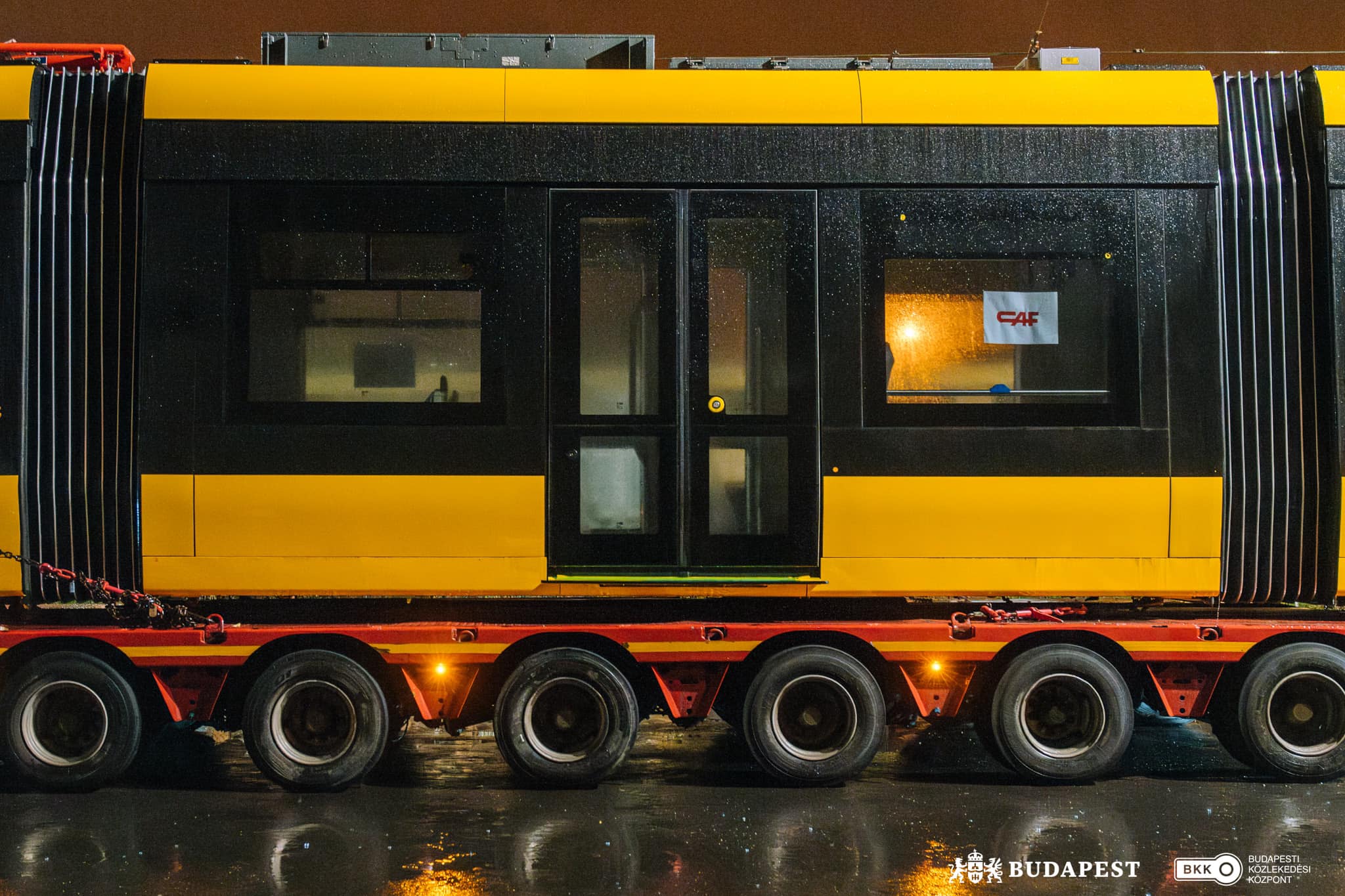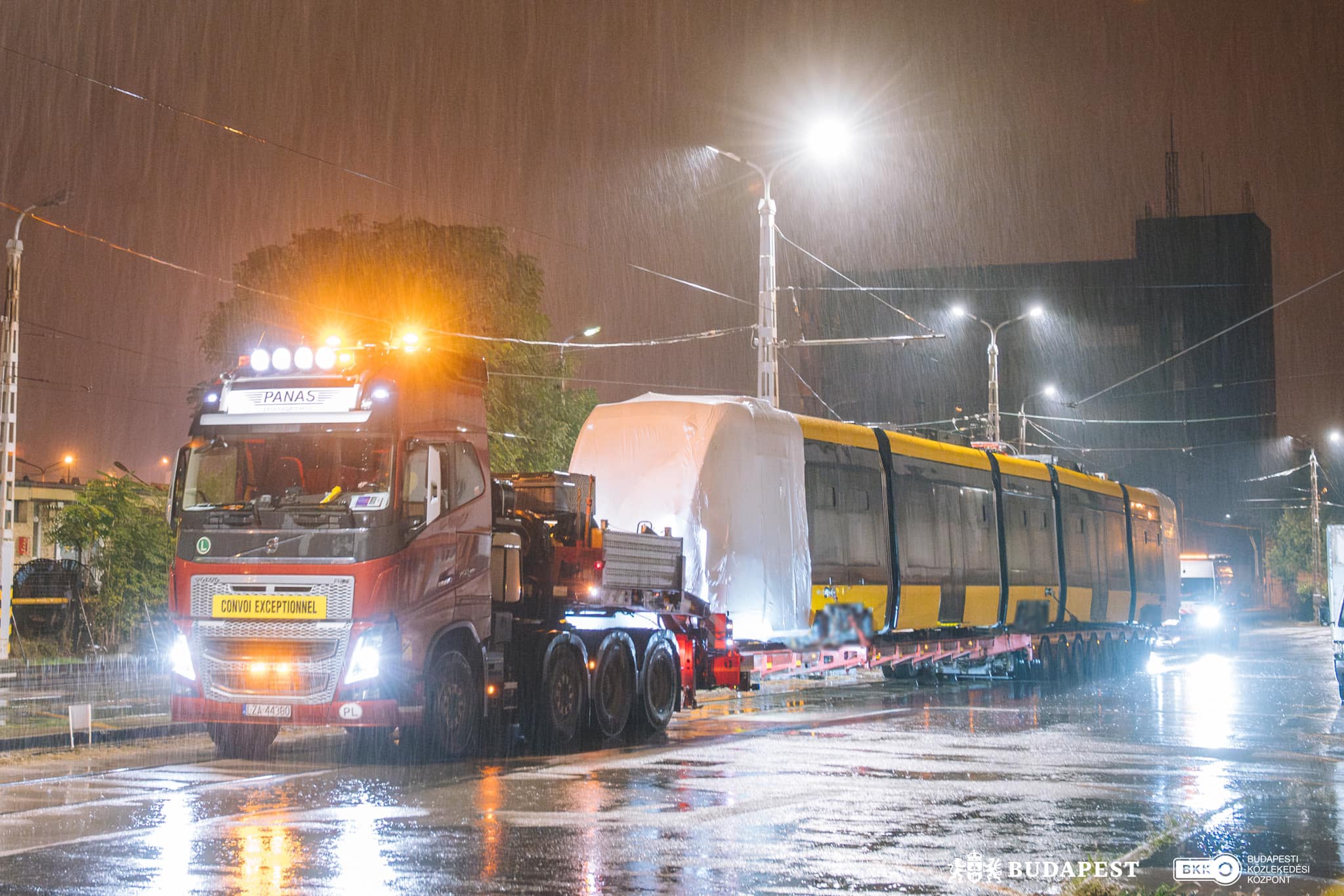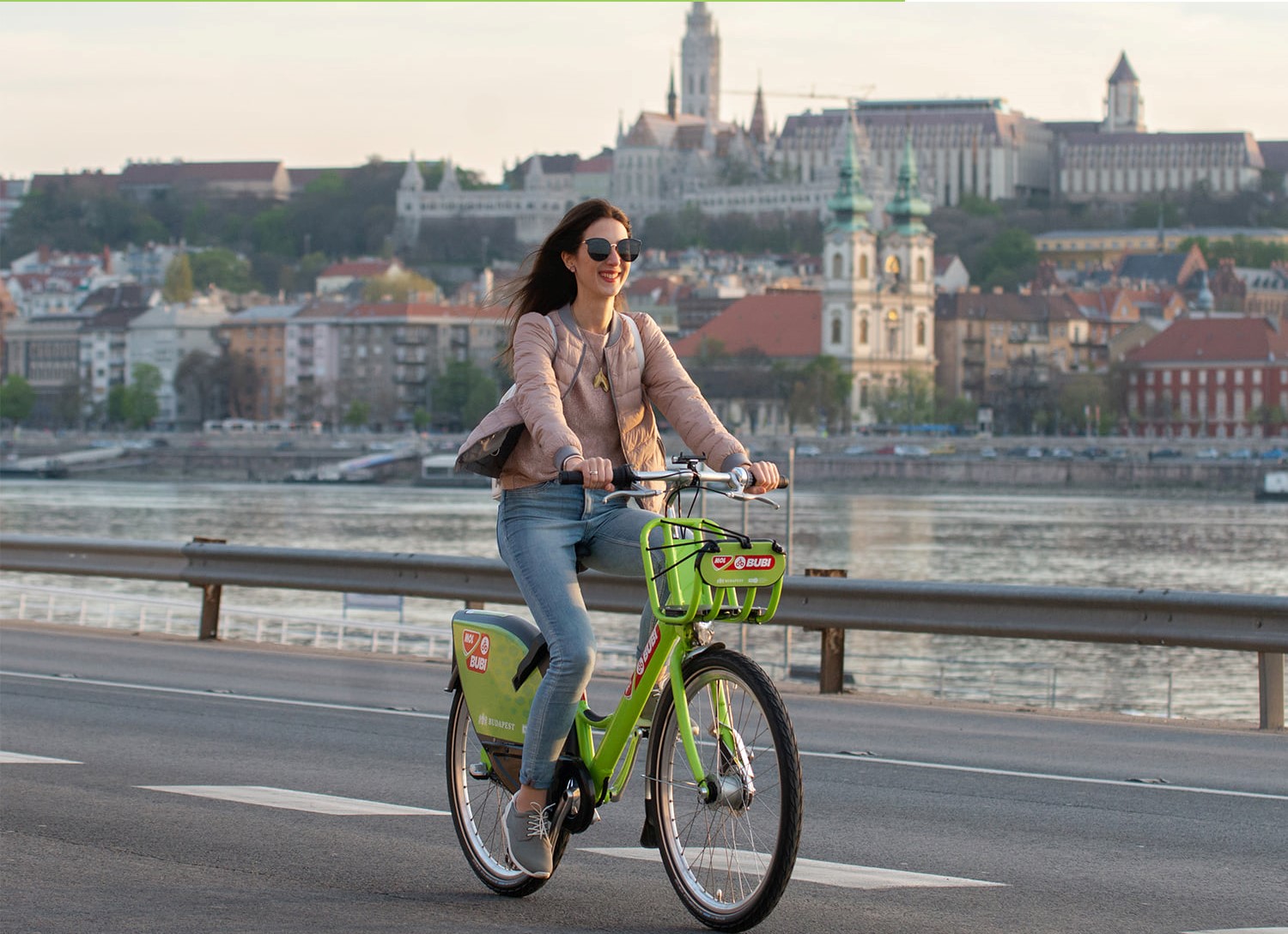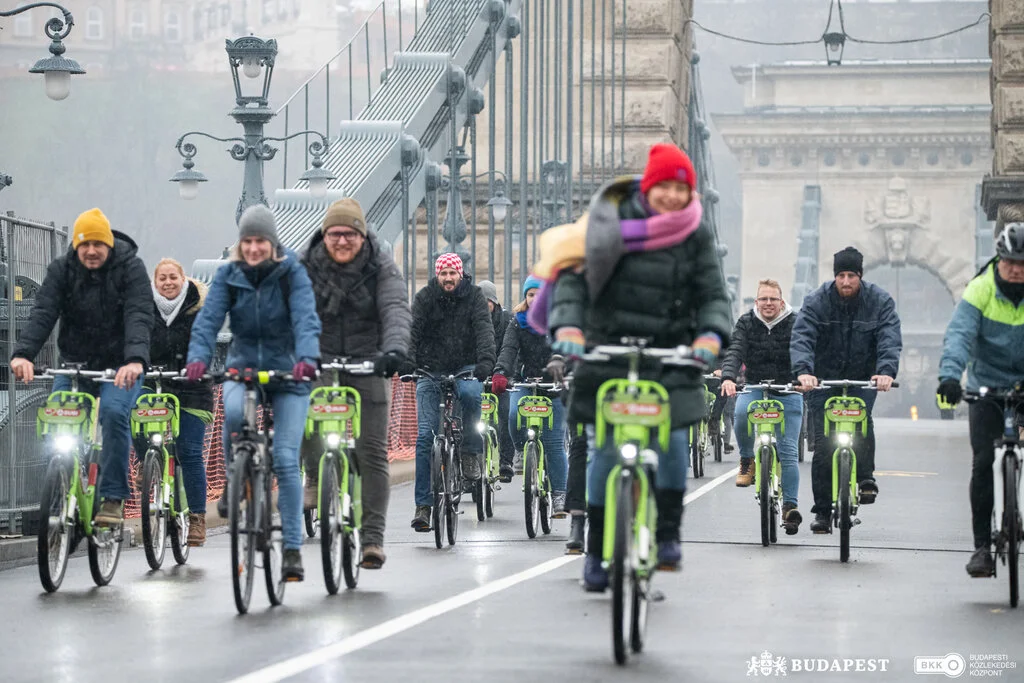Brand-new Spanish trams come to Budapest, public bike system to be renewed, extended

Budapest took delivery of the first unit of new CAF Spanish trams yesterday evening. Furthermore, the Budapest Transport Company announced a significant expansion of the MOL Bubi public bike system and plans to increase the number of bikes to 5,000, including 1,000 public e-bikes.
New Spanish trams serve Budapest passengers
The first CAF tram, manufactured and assembled in Spain, of a 51-unit order had arrived in the capital, the Budapest Public Transport Centre (BKK) said on Friday. The tram is expected to be put into service by the end of the year, BKK said. The CAF order will boost the ratio of low-floor Spanish trams on the tracks in Budapest from 30% to 40%, the Hungarian News Agency wrote.
According to the BKK, the new CAF trams will carry passengers after successful testing, which they expect to finish towards the end of 2024. The new tram was manufactured in Spain, it is 34 metres long and has a higher performance AC system. It is low-floor, so passengers with baby carriages or wheelchairs can use it.
Its energy efficiency is higher since it can feed back the energy generated during regenerative braking into the electricity grid if the overhead contact line is appropriate. The new trams are more advanced compared to old CAF vehicles. Their sides, doors and inner coverage are different.

The new trams will commute on South Pest lines.
By 2021, Budapest received 73 new CAF trams. BKK ordered 20 short trams and increased that order by 26 short and five long trams in 2023 (altogether 51). Some trams will be assembled in Budapest, others in Spain, BKK wrote. From the end of 2025, the number of low-floor trams on lines 1, 2, 14, 23, 24, 42, 50, 51A, 62A, and 69 will increase significantly thanks to the acquisitions, the company promised.
The BKK is already working on a tender to buy 100 new, modern trams.

MOL Bubi public bike system to be renewed, extended with public e-bikes
The new and extended MOL Bubi 3.0 system will begin operation in 2026, the BKK wrote in a statement. The relevant public procurement process will start in October. The process will take 8-10 months, and the new contract will probably be signed in summer 2025. As a result, the first new bikes may arrive in January 2026.
The development concerns three key areas. MOL Bubi’s fleet will be significantly expanded from approximately 2,500 bikes to 5,000. Moreover, 1,000 of them will be electric.

BKK plans to extend the operation area of the MOL Bubi to Kőbánya-Kispest train and metro station, Zugló, Angyalföld, Újpest, and Őrmező. The new system aims to reach all those traffic junctions in Budapest that serve at least 30,000 passengers.
MOL Bubi is ten years old this year and revolutionised micromobility in Budapest in this period. Furthermore, it also facilitated the building of new bike lanes and increased the number of regular bikers in the city.

Read also:
- The MOL Bubi bike-share program is popular in Budapest – read more HERE
- An important milestone in Budapest’s public transport: new electric buses to come





